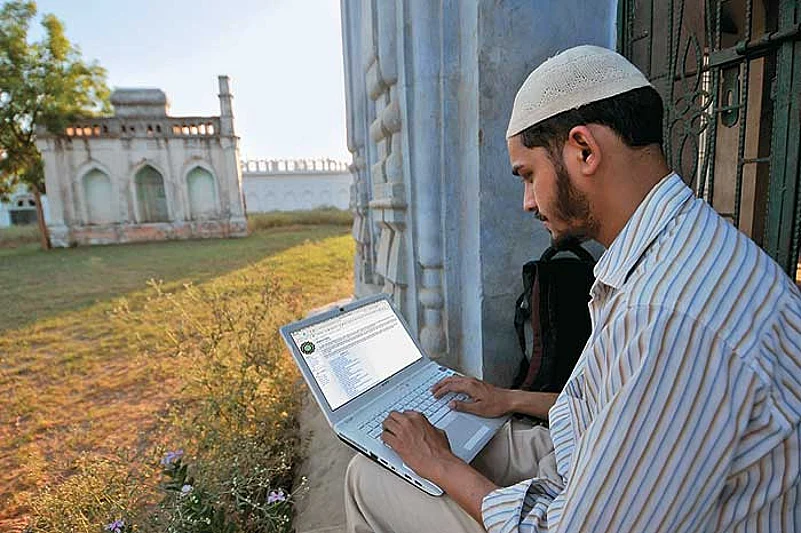What began as an ingenious protest with Mecca Cola—a cola drink launched by a Muslim in France in 2002—has now morphed into a full-fledged secession on the internet. A growing number of Muslims across the world are asserting themselves by launching Islamic versions of existing popular websites. Mustafa Patel, a Canadian Muslim entrepreneur of Indian origin, is the latest on the block with a Wikipedia-like encyclopaedia being put together with help from young Indian Muslim volunteers. Ilmpedia (‘ilm’ means knowledge in Arabic) will be launched in July and will be available in English and Arabic, followed by Hindi, Urdu, Bengali and Tamil. Other language versions in Spanish, Swedish and Malay are also in the works. Ilmpedia has garnered around 100 volunteers to pen the entries. Over 50 are from India, others are mostly from Pakistan, Egypt, Algeria and the uae.
But why break away? “Wikipedia and Facebook are only as good as their administrators,” says Patel, who runs Madina.com, a social networking site launched for Muslims. “They may allow pictures and cartoons of Mohammed and other Islamophobic content, yet won’t tolerate anti-Semitic content at all.” Many Muslim countries recently banned Facebook after some people created a page on it asking for submissions of caricatures of Prophet Mohammed. “There is a lot of information about Islam and Muslims online, yet much of it is not true and may be from anti-Islamic sources. So there is a need for an encyclopaedia from authentic Islamic sources,” adds Patel.
When Ilmpedia becomes operational, it is sure to generate heat, as volunteers begin writing on contentious issues like the state of Muslims in Gujarat and police atrocities in Jammu and Kashmir. For many, especially non-Muslims, the Ilmpedia entries would appear overly eulogistic, some even grossly inaccurate. An incomplete entry on Islam in India makes ludicrous claims like “Islamic history is the same as human history”. The one on Jews includes derogatory references to them from the Quran. The entries submitted are vetted by a panel comprising Patel, Mazin Khan, the Delhi-based operations manager for Ilmpedia, and Amr Ali, a volunteer from Cairo.
Websites like these are part of a growing trend of Islamicisation on the web. Many Muslims are creating a safe space for themselves online, with the firm notion that their faith is under attack and the belief that there are many like-minded people to support such a move. Islamicfacebook.com has already made its appearance and a group of Pakistanis have recently launched Millatfacebook, another social networking site. In June 2009, a Saudi firm launched an Islam-friendly YouTube called NaqaTube. It was soon followed by imhalal.com, a Sharia-compliant search engine promoted by an Iranian living in Amsterdam.
Praising the internet for popularising dissent among Muslims, sociologist Imtiaz Ahmad says Islam is experiencing a kind of pluralism like never before due to the medium. “There’s no single standard theological position today and each one is liable to be questioned. But there is a problem too,” he adds, “as many radicals have seized the web to propagate their beliefs that reinforce a narrow Muslim identity.” So, will these websites promote dialogue between Islam and other religions? Or will they end up ghettoising Muslims even more, giving a freer run to stereotypes? It’s a moot question.


























